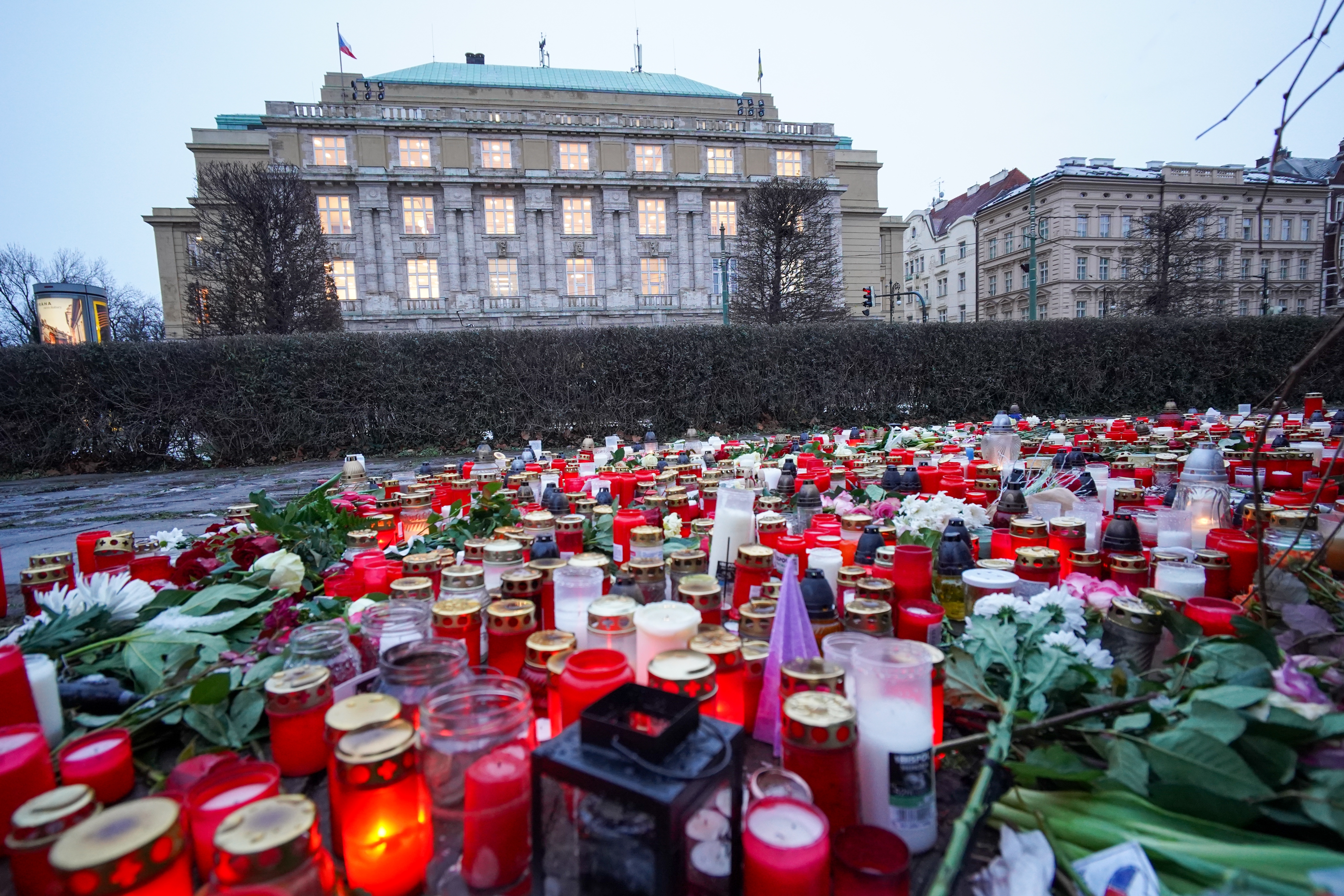From a horrific day in Prague
The mass shooting at Charles University on December 21st shocked observers both in the Czech Republic and further afield. Such a rare event has struck at the heart of an education system that has played such a pivotal role in national and European history.
January 11, 2024 -
Gabriel M. Paletz
-
Articles and Commentary

Candles and flowers in front of the Arts Faculty of the Charles University in Prague. Photo: Milan Sommer / Shutterstock
From an unprecedentedly horrific day in Prague (December 21st), I need to share a few thoughts on why the mass shooting at the Faculty of Arts at Charles University, where I taught this autumn semester, leaves a long shadow on this much-loved city.
It is not just that it was nearly Christmas and people were looking forward to times with loved ones. It is not only that Prague was one of the European capitals least affected by public violence and travellers from everywhere came here to the centre of the continent in peace.
The heinous attack on the Faculty of Arts is particularly awful because of the special role of education for the Czech nation (although you would not know it from the faculty salaries, over which there was a strike in October). In the vicissitudes of history, thinkers rather than nobles have led the Czechs – from the country’s first president, a professor and philosopher, to its most famous dissident and president, a playwright. A former dean and rector is the country’s current prime minister. Students sparked the Velvet Revolution that freed the country from communism. The power of ideas has genuinely moved this land.
The Czech and foreign students I taught this semester were bright, funny and engaged. I look forward to their future ideas and careers; the loss of one of them, or of their teachers, is singularly painful.
That this brutal shooting happened at the Faculty of Arts tears apart an institutional trust. Anyone could enter the building as students and teachers did all day. The concierge hut is inside the door with its back to the entrance. There was utter composure (or naivety) in people’s comings and goings. The faculty stands by the Vltava River on Jan Palach Square, named for the student who set himself on fire to protest the invasion that crushed the Prague Spring. Now another student has left an excruciating memory on his country.
Foreign media replay shots of people scattering over the Charles Bridge, one of Prague’s iconic landmarks. That monument actually lies one bridge to the south of the Faculty, which faces the concert hall of the Rudolfinum and the Academy of Arts, Architecture and Design (UMPRUM). Even if the steps between these sites of native achievement remain unobstructed, the freedom and ease to pursue new knowledge will be stymied for a while.
This attack at and on a seat of learning is, if possible, even more shattering in the Czech Republic than elsewhere. For it robs the country not only of its youth, but also of the liberty of learning that has made Czech history at times one of the most progressive in Europe. Prague mourns its learned, its young and the life that they give to essential intangible things.
Gabriel M. Paletz first came to Prague in what was then Czechoslovakia just after the Velvet Revolution in 1990. A graduate of Yale University and the University of Southern California, he returned to Prague to teach film to students from five continents, this year at both the Prague Film School and the Charles University Faculty of Arts.
Please support New Eastern Europe's crowdfunding campaign. Donate by clicking on the button below.

































